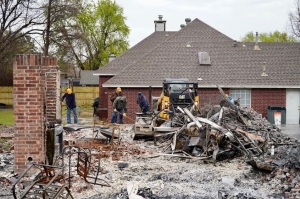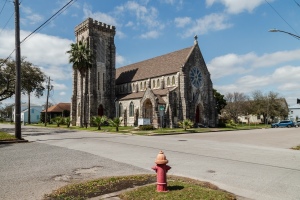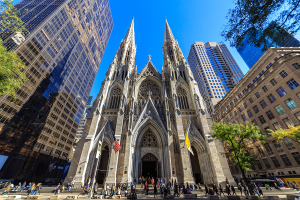'Cosmos' Accused of Taking a Jab at Catholics
Some are crying foul at the opening episode of the much-anticipated reboot of the Carl Sagan science program "Cosmos."
Hosted by astrophysicist Neil deGrasse Tyson, Sunday's debut episode featured an animated segment on the persecution of Giordano Bruno, a 16th-century monk and astronomer.
Bruno claimed that neither the earth nor the sun was the center of the universe, reportedly prompting his arrest and execution as demanded by the Roman Catholic Church. It is a scene that some, including media researcher Matt Philbin, have decried as unfairly attacking the Catholic Church.
Managing editor of the Culture and Media Institute of the conservative group the Media Research Center, Philbin told The Christian Post that "Cosmos" "absolutely" was taking a jab at the Church.
"They skipped Copernicus and Galileo -- two far more consequential men in proving and disseminating the heliocentric theory -- because in their cases, the Church's role was much more complicated," said Philbin.
"An honest telling of either story would open the door to a discussion of what else the Church had done over the years to preserve and foster scientific inquiry. That would never lend itself to a simple story of cartoon(ish) clerics stamping on knowledge and burning books."
Philbin also told CP that he believed the Bruno story was told because "it's a Manichean good vs. them tale."
"They then dumb it down to remove all Bruno's weird theological ideas, and leave us with a Bruno who's little more a hapless hippie burned at the stake for having a psychedelic dream," said Philbin.
"I understand the reverence a lot of people have for Carl Sagan's original, but space ships and cartoons are the stuff of Saturday morning TV, and with the host's obvious condescension toward Christians, the whole thing was dumbed down to the point of being unwatchable."
A reboot of the popular Sagan series from the 1980s, "Cosmos" aired its introductory episode on Sunday. The documentary series explores the attributes of space and the laws of nature.
The debut episode garnered controversy for its focus on the Bruno story, with James Poniewozik of Time magazine stating that the series "steps into the culture war."
"The message is plain: there is a right side and a wrong side of intellectual history, and Cosmos is not afraid to say that science is on the right one," wrote Poniewozik.
Jennifer Bardi, editor-in-chief of The Humanist and senior editor of TheHumanist.com, told The Christian Post that the story was necessary in showcasing "individuals who took great risks in formulating and sharing groundbreaking ideas."
"Bruno was instrumental in inspiring other scientists to increase our knowledge of the universe and its vastness. Yes, the Catholic Church punished him for his ideas. How is it unfair to portray this piece of history?" said Bardi.
"It's also worth noting that the show doesn't shy away from Bruno's exaltation of God as the limitless creator of the vast universe."
Regarding the series itself, Bardi told CP that "popularizing science is a noble endeavor" and it is "gratifying to see the show given such a grand stage."
"Both Carl Sagan and Neil deGrasse Tyson are examples of scientists whose humanity and likeability make them great ambassadors for the adventure that is scientific discovery," said Bardi.
"They're also both near and dear to humanists-the American Humanist Association honored Sagan with the Humanist of the Year in 1981 and Neil deGrasse Tyson received the Isaac Asimov Science Award in 2009."
The Catholic League for Religious and Civil Rights issued a statement denouncing the series, declaring that it "smears Catholicism."
"As for Bruno, he was a renegade monk who dabbled in astronomy; he was not a scientist. There is much dispute about what really happened to him," stated the League which cited sources disputing "Cosmos'" retelling of Bruno's life.
"In short, MacFarlane, who is no stranger to the Catholic League, has once again shown his true colors."





























